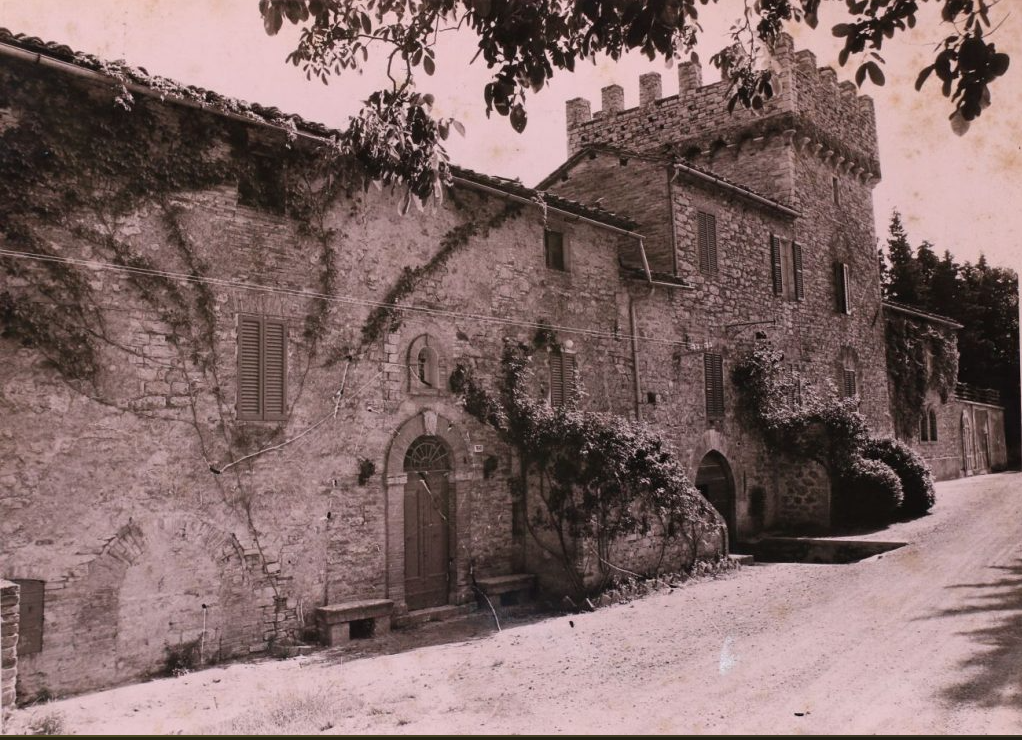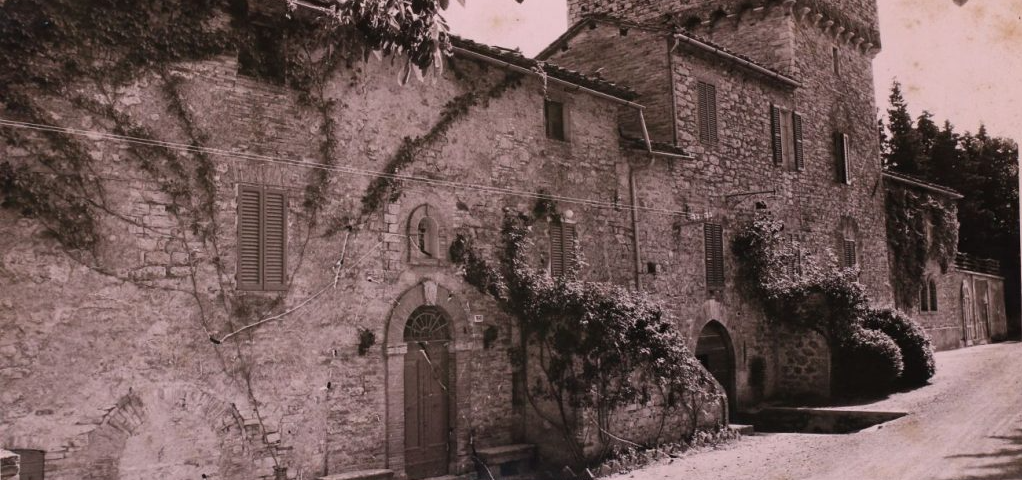Last updated on June 22nd, 2023 at 10:08 pm
An excerpt from the book Great Messages:
“1931 Four European summers ago, Pietro Ubaldi took a vow of poverty. Two millennia ago he had denied Christ. Would he now be willing to be his Servant, faithful in all the moments of his life? The mission was big and he didn’t know it, because he didn’t remember at all the plan drawn up before his birth. Intuition only warned him that he should prepare for this new change and the time to start was approaching. To take on the missionary task was essential to completely renounce the benefits that wealth provided. The vow of poverty was necessary but not sufficient.
By coincidence, a vacancy was announced for an English teacher in Modica (Sicily), to be achieved through public competition, maximum age 45 years. This vacancy was at Tomaso Campailla High School and Sicily is the last region in the south of Italy, hundreds of kilometers from Rome. The Italian south is poorer than the north, and Rome is in the center. The entire Franciscan region lies in the north of Italy, where Ubaldi was born and lived, until 1952,when he moved to Brazil.
The opportunity was very good, nothing held him back in that environment in which he lived, other than the fulfillment of his duties towards the family, which he may fulfill even at distance and with periodic visits. So he could realize the biggest dream of his life: work for Christ. He applied for the job, prepared himself, took the exam and was approved, in first place. A new public hiring only took place ten years later.
He was nominated. Now uncertainty takes hold of his soul. Pietro Ubaldi, too, was human. Leaving his domestic nest, where his dear sister, pain, provided him with so much good company? Leaving material comfort, which he knew how to enjoy so well, to opt for a rented room on one of those streets in Modica? This was not his preferred city… Only one consolation remained for him: he would live the Franciscan ideals, his greatest desire – even before taking the vow of poverty and Christ appearing to him. That memory took over his spirit, enveloped him and revived his strength to decide whether he would take office or not.
The first change, at age 5 (when he started school), changed his habits, because he started to live inside and outside the Alleori Ubaldi Palace; the second change, at the age of 25 (marriage), forced him to have a life in common with his wife, children and material goods; and this third change, at the age of 45 (total resignation), forced him into a lonely life, far from his relatives, in a poor room, without any comfort. His 45th birthday already had been celebrated alone with God and he was no longer young for new changes, but courage was not lacking. After an immersion in his depths, after examining the question in depth, he decided: he would accept the teaching post and live the Gospel in its entirety. There are certain decisions that should only be taken before one’s own conscience and God. In the first week of September 1931, “the great decision had been taken, at once, matured in the silence of the night”. He came down from the third floor of the tower, where he slept, in the Tenuta (farm) Santo Antônio, in Colle Umberto and entered the family home (town house) adjacent to the tower. He had his glass of milk and went out for the short morning walk, accompanied by the pet dog.
“The perspective was tough, and the fight to win was not easy. But the spirit won, the Gospel had triumphed, despite knowing that that act meant the beginning of another kind of life: instead of the existence of the idle rich in a well-being that has not been gained, that of one who must earn his daily bread with his own work. It was another way of life, to which he remained faithful till the end.
That man climbed the hill with a light heart, wrapped in the euphoria of a spiritual triumph. A kind of potent high voltage vibration was gathering and building up inside him. At the same time he felt, confusedly, that something, still not perceptible, was condensing around it, without yet a defined form. The tension was getting always more intense. What would be happening? Something irresistible was seizing him. Yet he was still wide awake, in full consciousness. Walking slowly, he saw, observed, became aware of everything. He wasn’t dreaming. A new reality hit him, different from that sensory one that he knew so well. And he walked, watching and confronting, with attention and full lucidity of mind, the two realities.
A perceptual ability, different from normal, warned him of the presence of other beings close to him, living, thinking entities like him. But he still couldn’t individualize them, perceive their form and thought.
He continued to climb until he came to a wide path at the top of the hill that now was flat with a few olive trees scattered across the breadth. Silent solitude. Here he slowed down. It was almost 11 am.
He continued on the path, advancing the two parallel shapes. This lasted about twenty minutes, so he had time to control everything and fix them in his memory, to then analyze the phenomenon with rational, positive psychology, independent of emotional states, he couldn’t do it better: he disconnected from the phenomenon by unfolding in the two positions of subject and observer, both merged now in the same function.
He continued to watch. The two forms not only constituted an indefinite manifestation of presence. Each of them conveyed to his inner perception a typical and individual vibration that defined it as a person. That’s how he could immediately feel clearly and unmistakably that to his left was the figure of St. Francis and to his right that of Christ. They moved with him, walking, but there was no colloquy, no transmission of private thoughts. Their presence was concentrated, above all, in a solemn affirmation of one’s own individual identity.
There were no human witnesses. Would they have noticed if there had been? Or was it a good thing that it hadn’t existed, because that way they could have paralyzed the phenomenon? However, the observation was accurate to the point of noticing that there was a small witness: and it appeared to have sensed that something was going on. That man was accompanied by his little dog, used to walking around him. Well, in those few minutes, it behaved differently than the usual. It kept around him, barking at someone or something that it must have been noticing around the owner. Without this fact there is no explanation for such exceptional behavior, which had no other apparent cause in that solitude. That dog could not speak and say what he had perceived but it was right that it seemed to have felt something.
Having traveled that stretch of the road in that brief period of time, the high tension could no longer be endured and the vision slowly faded. It was only the external environment, that which the physical senses normally perceive, only things that everyone comes and to which, because they always come, little importance is given. The sky closed, and everything came back as before, as if nothing had happened. The view, however, remained indelible, burned into that soul like a burn of light, a wound of love that time will never be able to cancel, made of longing, of a continuous and anguishing wait for the re-encounter. The vision passed like a burning passion, but fruitful, leaving a seed in the soul. It was hidden, then germinated during its earthly existence; grew, bore fruit, produced new seeds, to later sprout, grow, bear fruit again in another place, in other souls, working the miracle of the multiplication of life at a higher level, on the spiritual plane. Since the moment that interior fact happened, which has not been seen perhaps by anyone else but him, that man no longer stopped”.
On September 23, 1931, Pietro Ubaldi took over the chair of English at Tomaso Campailla High School, a ceremony as simple as the simplicity that he would live, in far off Sicily, from that day on, in a rented room, opposite to St. Peter’s Church.”

